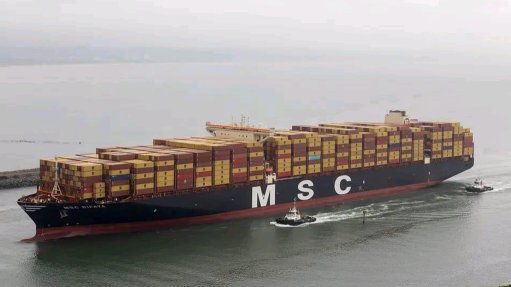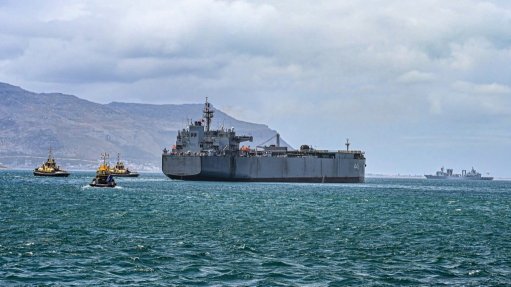Operation North Pole
Once upon a time, I tell the youth, there was a world war called World War II.
Germany and Italy were fighting the UK, France and the US. The Germans invaded and occupied France, Holland, Belgium and Norway. The British decided to disrupt the German occupation of France and Holland by parachuting agents into these countries to arrange for sabotage and resistance by the local population. The agents were trained by a British organisation called Special Operations Executive (SOE).
The Germans, naturally, wanted to disrupt any resistance and wished to capture the agents. In Holland, an Abwehr officer (German intelligence officer), Herman Giskes, head of Abwehr Section IIIF, set his mind to capturing agents who were either dropped by parachute into Holland or who landed by boat.
He devised a plan as follows: the Abwehr should concentrate on trying to locate any transmitters used by any existing agents. This they could do by using vans fitted with radio receivers and directional antenna. Once a transmitter was located, they should listen to and copy the messages exchanged between SOE (in London) and the agent; after a short period, arrest the agent and try to make him act as a double agent, whereby messages to SOE would continue but their content would be controlled by the Abwehr.
At this time, all messages were transmitted in Morse Code. All agents trained by SOE were trained in Morse Code and all messages were encoded using a cipher. The cipher used was not very complicated and relied on enciphering a message using a sentence. Naturally, SOE anticipated the capture of agents and, while the agents were issued with cyanide, they were only expected to use it in cases of torture. SOE expected the agents to not divulge any information for 24 hours, after which other agents could escape, London could change transmitting schedules, et cetera. SOE agents were told that, under interrogation, they could divulge items of general interest but were not to divulge their code sentence (SOE correctly guessed that the Germans would have little difficulty deducing the code from the captured transmitted messages).
What the agent was to keep secret was the security key – a letter or word that should always be transmitted in a message in a specific way which would alert SOE that the agent had been captured or ‘turned’. One would think that (a) on capturing an agent, the Germans would simply execute him or her after a lengthy period of torture or (b) the Germans would allow the agent to escape and then have the agent followed to lead to other agents.
Giskes greatly preferred a third option: once he had captured a transmitter, he would convince the agent to transmit some messages to SOE in London. He knew that the agent would insert a code of some sort to indicate capture. He could compare captured messages with the newly transmitted messages and see which parts of the messages by comparison revealed the security check.
The first captured agent, Lauwers, thought that the best outcome would be to transmit messages with the code so that London knew he had been captured and act accordingly. He did so. Radio traffic continued. This is what Lauwers had expected. But then messages from London indicated that a further agent would be dropped by parachute in a week’s time; in fact, agent Abor did arrive on time and was arrested. From this time, an operation known as Nordpol or Englandspiel escalated. Soon, Giskes was running five radio transmitters and intercepted parachute drops, which contained arms, explosives, radios and agents. Lauwers desperately tried to raise the alarm in many ingenious ways but SOE, blinded by its apparent success, would not believe that it was all a German scam.
However, one SOE worker, Leo Marks, thought it was. In the next column: Leo Marks of SOE.
Article Enquiry
Email Article
Save Article
Feedback
To advertise email advertising@creamermedia.co.za or click here
Comments
Press Office
Announcements
What's On
Subscribe to improve your user experience...
Option 1 (equivalent of R125 a month):
Receive a weekly copy of Creamer Media's Engineering News & Mining Weekly magazine
(print copy for those in South Africa and e-magazine for those outside of South Africa)
Receive daily email newsletters
Access to full search results
Access archive of magazine back copies
Access to Projects in Progress
Access to ONE Research Report of your choice in PDF format
Option 2 (equivalent of R375 a month):
All benefits from Option 1
PLUS
Access to Creamer Media's Research Channel Africa for ALL Research Reports, in PDF format, on various industrial and mining sectors
including Electricity; Water; Energy Transition; Hydrogen; Roads, Rail and Ports; Coal; Gold; Platinum; Battery Metals; etc.
Already a subscriber?
Forgotten your password?
Receive weekly copy of Creamer Media's Engineering News & Mining Weekly magazine (print copy for those in South Africa and e-magazine for those outside of South Africa)
➕
Recieve daily email newsletters
➕
Access to full search results
➕
Access archive of magazine back copies
➕
Access to Projects in Progress
➕
Access to ONE Research Report of your choice in PDF format
RESEARCH CHANNEL AFRICA
R4500 (equivalent of R375 a month)
SUBSCRIBEAll benefits from Option 1
➕
Access to Creamer Media's Research Channel Africa for ALL Research Reports on various industrial and mining sectors, in PDF format, including on:
Electricity
➕
Water
➕
Energy Transition
➕
Hydrogen
➕
Roads, Rail and Ports
➕
Coal
➕
Gold
➕
Platinum
➕
Battery Metals
➕
etc.
Receive all benefits from Option 1 or Option 2 delivered to numerous people at your company
➕
Multiple User names and Passwords for simultaneous log-ins
➕
Intranet integration access to all in your organisation


















